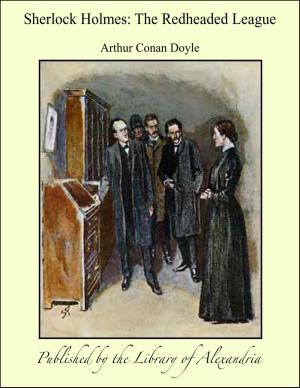The Hope of the Katzekopfs: The Sorrows of Selfishness. A Fairy Tale
Nonfiction, Religion & Spirituality, New Age, History, Fiction & Literature| Author: | Francis Edward Paget | ISBN: | 9781465613486 |
| Publisher: | Library of Alexandria | Publication: | March 8, 2015 |
| Imprint: | Language: | English |
| Author: | Francis Edward Paget |
| ISBN: | 9781465613486 |
| Publisher: | Library of Alexandria |
| Publication: | March 8, 2015 |
| Imprint: | |
| Language: | English |
How is it that the faithful hound succeeds in finding his way back to his master’s house, from a distance of many miles, and through a country which he has never been permitted to see? How is it that the carrier-pigeon, when loosed from the bag in which it has been confined, mounts up into the air, makes one brief circuit, and then pursues his way, through an unknown region, in a straight line homeward? Mysteries these, which the more we attempt to investigate them, the more do they bewilder us, and, in the attempt to elucidate which, the learned and the ignorant are alike at fault. However, our daily experience of the fact that such things are, at once removes any antecedent improbability which might otherwise suggest itself to the sceptical, when it is mentioned that Witikind, though transformed into a hare, found little difficulty in discovering his route to Taubennest. Had he been even a hare only, his instinct would probably have guided him in the right direction; but being a sharp-witted boy, as well as a hare, there seems little cause for wonder in the matter. The circumstance most worthy of remark is, that he should have performed his journey of many hundred miles in the course of a single night. The spells of the Lady Abracadabra had secured him from the perils of huntsmen and hounds; but how had she bestowed upon him such marvellous speed of foot? The sun was setting, as we know, when the son of Count Rudolf received his unexpected dismissal from the Court of King Katzekopf: ere the moon had risen, the towers and cupolas of the city scarce broke the line of the distant horizon: by midnight, a distance which, to the ordinary traveller, would have been equivalent to a six-days’ journey, had been mastered, and when the chilliness of the first grey dawn refreshed the heated frame of the breathless quadruped, the giant forms of his own loved mountains were looming dim and indistinct in the shadowy distance. What was it that gave to Witikind the speed of the winged wind? Was it solely the boon of his patroness? or was it not the magic of deep affection,—of filial and fraternal love, and the spells of home—which infused into his tender frame a vigour with which even the supernatural gifts of Fairy-land would have been unable to inspire him?
How is it that the faithful hound succeeds in finding his way back to his master’s house, from a distance of many miles, and through a country which he has never been permitted to see? How is it that the carrier-pigeon, when loosed from the bag in which it has been confined, mounts up into the air, makes one brief circuit, and then pursues his way, through an unknown region, in a straight line homeward? Mysteries these, which the more we attempt to investigate them, the more do they bewilder us, and, in the attempt to elucidate which, the learned and the ignorant are alike at fault. However, our daily experience of the fact that such things are, at once removes any antecedent improbability which might otherwise suggest itself to the sceptical, when it is mentioned that Witikind, though transformed into a hare, found little difficulty in discovering his route to Taubennest. Had he been even a hare only, his instinct would probably have guided him in the right direction; but being a sharp-witted boy, as well as a hare, there seems little cause for wonder in the matter. The circumstance most worthy of remark is, that he should have performed his journey of many hundred miles in the course of a single night. The spells of the Lady Abracadabra had secured him from the perils of huntsmen and hounds; but how had she bestowed upon him such marvellous speed of foot? The sun was setting, as we know, when the son of Count Rudolf received his unexpected dismissal from the Court of King Katzekopf: ere the moon had risen, the towers and cupolas of the city scarce broke the line of the distant horizon: by midnight, a distance which, to the ordinary traveller, would have been equivalent to a six-days’ journey, had been mastered, and when the chilliness of the first grey dawn refreshed the heated frame of the breathless quadruped, the giant forms of his own loved mountains were looming dim and indistinct in the shadowy distance. What was it that gave to Witikind the speed of the winged wind? Was it solely the boon of his patroness? or was it not the magic of deep affection,—of filial and fraternal love, and the spells of home—which infused into his tender frame a vigour with which even the supernatural gifts of Fairy-land would have been unable to inspire him?















